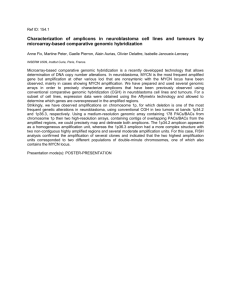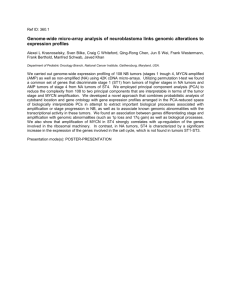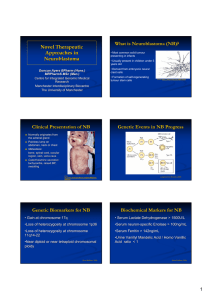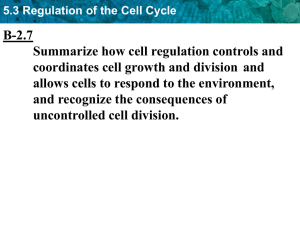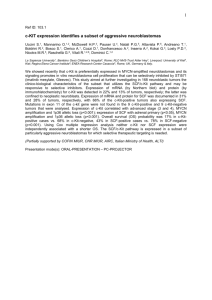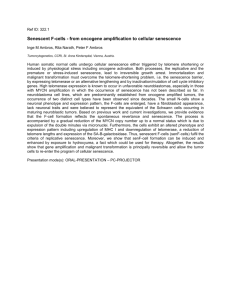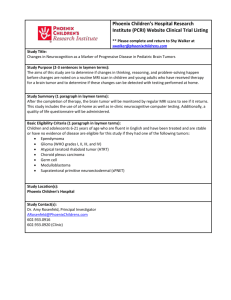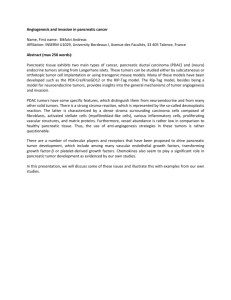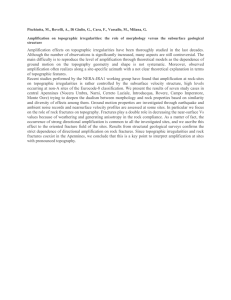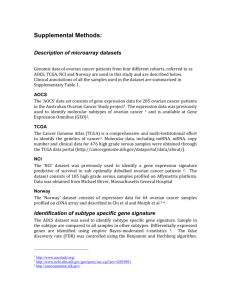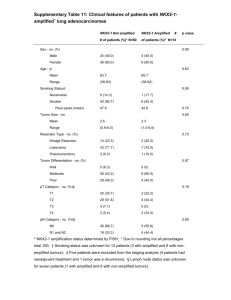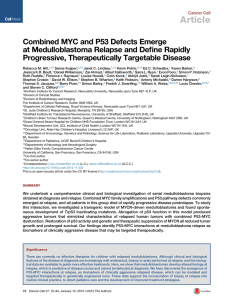056.1 Valent
advertisement
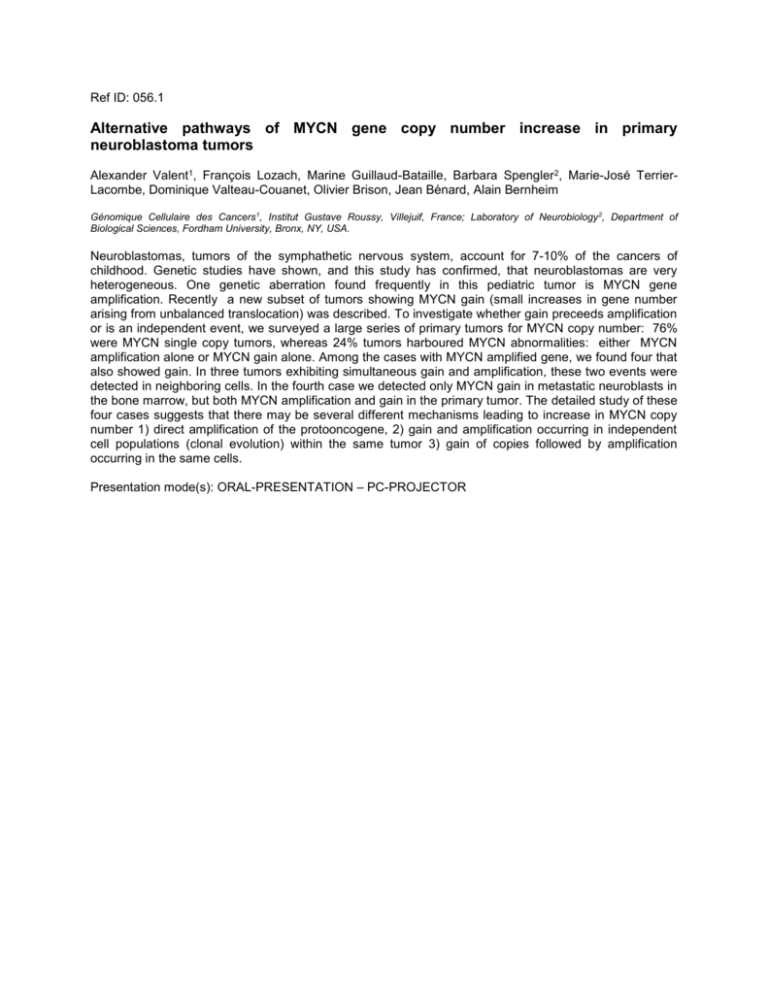
Ref ID: 056.1 Alternative pathways of MYCN gene copy number increase in primary neuroblastoma tumors Alexander Valent1, François Lozach, Marine Guillaud-Bataille, Barbara Spengler2, Marie-José TerrierLacombe, Dominique Valteau-Couanet, Olivier Brison, Jean Bénard, Alain Bernheim Génomique Cellulaire des Cancers1, Institut Gustave Roussy, Villejuif, France; Laboratory of Neurobiology 2, Department of Biological Sciences, Fordham University, Bronx, NY, USA. Neuroblastomas, tumors of the symphathetic nervous system, account for 7-10% of the cancers of childhood. Genetic studies have shown, and this study has confirmed, that neuroblastomas are very heterogeneous. One genetic aberration found frequently in this pediatric tumor is MYCN gene amplification. Recently a new subset of tumors showing MYCN gain (small increases in gene number arising from unbalanced translocation) was described. To investigate whether gain preceeds amplification or is an independent event, we surveyed a large series of primary tumors for MYCN copy number: 76% were MYCN single copy tumors, whereas 24% tumors harboured MYCN abnormalities: either MYCN amplification alone or MYCN gain alone. Among the cases with MYCN amplified gene, we found four that also showed gain. In three tumors exhibiting simultaneous gain and amplification, these two events were detected in neighboring cells. In the fourth case we detected only MYCN gain in metastatic neuroblasts in the bone marrow, but both MYCN amplification and gain in the primary tumor. The detailed study of these four cases suggests that there may be several different mechanisms leading to increase in MYCN copy number 1) direct amplification of the protooncogene, 2) gain and amplification occurring in independent cell populations (clonal evolution) within the same tumor 3) gain of copies followed by amplification occurring in the same cells. Presentation mode(s): ORAL-PRESENTATION – PC-PROJECTOR
